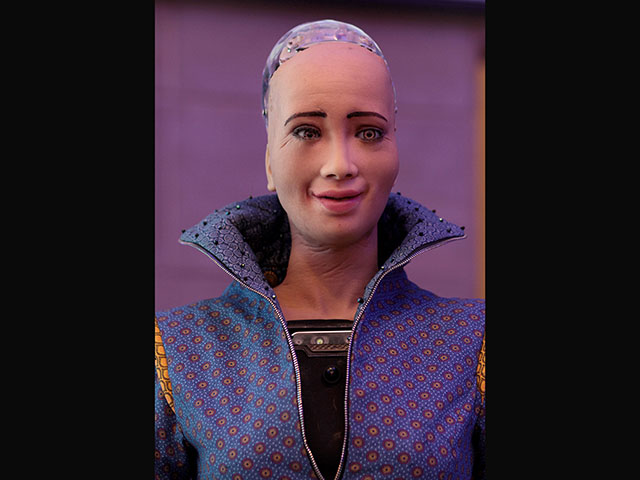Will the robot revolution deepen our humanity?
By Ryan Noik 22 July 2019 | Categories: feature articles
It’s not every day that you meet the world’s first humanoid robotic citizen, but standing next to Sophia the Robot, one can’t help but feel like humanity is at the very beginning of a future that was once only the domain of science fiction. This opportunity arose Sophia, along with her creator, David Hanson, arriving in town for the recent Davos of Human Capital 2019 event, held by Duke Corporate Education at The Forum in Bryanston.
The message from the event was not limited to the rise of androids or the likelihood of cybernetic beings eventually sharing the planet. Rather, it was on humanity and how people are still at the heart of the digital world in which we live, even as artificial intelligence, machine learning and automation are all garnering increasing attention.
Work - a uniquely human endeavor?
Indeed, one can argue that a very human activity has been and continues to be, work, whatever form that may take. So what then does the rise of AI mean for us when looking at the world of work and how technology will change it?
Sharmla Chetty, Duke CE’s president of Global Markets, stressed that building relationships, empathy, and bringing humanity into the workplace, is the future of work.
“Organisations can’t protect jobs which are made redundant by technology, but we do have a responsibility to our people. Leaders have a responsibility to nurture agility, adaptability and focus on protecting people, rather than jobs, through reskilling,” she elaborated.
Chetty continued that technology-driven change is compelling us to become more flexible and open to new concepts and ways of working. “We need to adapt to a new work reality in which careers become less linear and far more fluid. Change is accelerated and continuous which is why leadership will have a critical role to play in providing effective support and development opportunities for employees,” she added.
Prosperity prerequisites
As innovation and adaptability become ever more critical, Chetty believes that prospering in this new era of disruption requires a distinctly human approach where leaders are intellectually curious, creative and inquisitive about new opportunities to shape a more inclusive and prosperous world.
It is worth noting that intellectual facility, curiosity, creativity - all are distinctively human characteristics that as yet cannot be emulated by an algorithm or a machine.
“Almost every day we see new roles, skills and jobs emerging and while technology can amplify human genius, it can also highlight human limitations. Technology can do a lot of things, but it can’t replace the human touch. Ultimately, it’s up to us to ensure that technology reflects our humanity, our purpose, and our values,” she noted.
The human revolution
So where then, does that leave our encounter with Sophia the Robot? Well, it’s perhaps worth noting that the standard that Hanson has managed to achieve is that Sophia’s facial expressions are remarkable because they do resemble those that we see on the faces of human beings. But it is her eyes – and how lifelike they are – that are her most arresting feature, drawing one’s attention away from what is visibly a cybernetic/computer brain.
Perhaps, by creating humanoids, we will more clearly be able to reflect on and more deeply value our own innate humanity. If that is all the robot/android revolution brings us, then it would be enough. I would dare say that the most exciting facet of the era in which we live is not the rise of AI and cybernetics, but how it can spark the resurgence and deepening of our humanity.
Most Read Articles

Have Your Say
What new tech or developments are you most anticipating this year?



